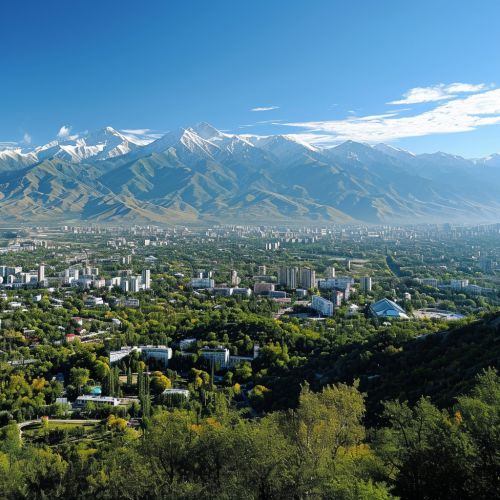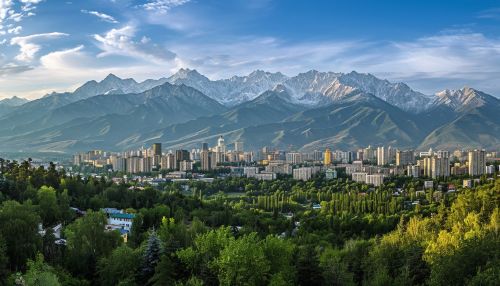Almaty
Geography
Almaty, the largest city in Kazakhstan, is located in the southeastern part of the country. Nestled in the foothills of the Trans-Ili Alatau mountains, the city enjoys a unique geographical position. The city's terrain is characterized by hilly landscapes and wide, tree-lined streets.


History
The history of Almaty dates back to the Bronze Age, with the first settlements established around 1000-900 BC. The city was initially known as Almatu, but it was renamed Almaty in 1921. The city has seen various periods of growth and decline, with significant development taking place during the Soviet era.
Climate
Almaty experiences a humid continental climate, with warm summers and cold winters. The city's proximity to the mountains results in a significant amount of snowfall during the winter months, making it a popular destination for winter sports enthusiasts.
Economy
The economy of Almaty is diverse and robust, with sectors such as finance, commerce, and tourism playing a significant role. The city is considered the financial hub of Kazakhstan, hosting the Kazakhstan Stock Exchange and numerous banking institutions.
Culture
Almaty is a cultural melting pot, with influences from various ethnic groups shaping its cultural landscape. The city is home to numerous cultural institutions, including the Abay Kazakh State Academic Opera and Ballet Theatre and the Central State Museum of Kazakhstan.
Education
Almaty is a major educational center in Kazakhstan, hosting numerous universities and research institutions. The Al-Farabi Kazakh National University, one of the oldest and most prestigious universities in Kazakhstan, is located in Almaty.
Transportation
Almaty boasts a well-developed transportation network, with an extensive system of buses, trams, and a metro system. The city is also served by the Almaty International Airport, one of the busiest airports in Central Asia.
